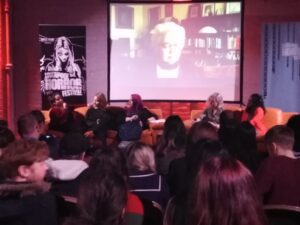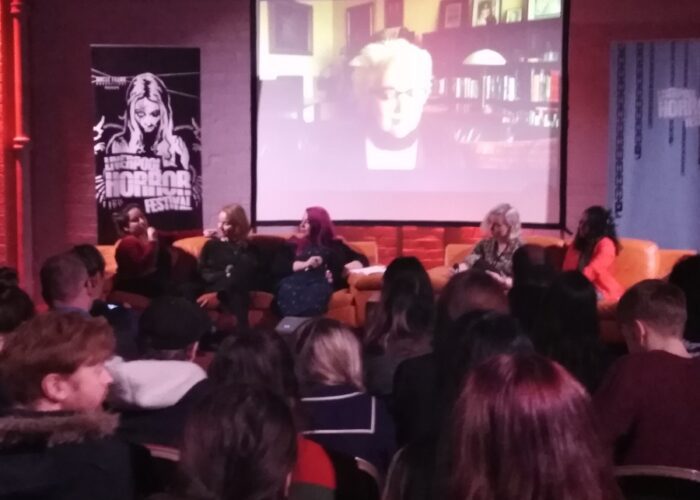
The difficulties of women finding work in the horror movie industry were put in the spotlight in a panel discussion at the weekend.
As part of Women in Horror Month, four people spoke of their experiences and some of the prejudices that they faced, in a talk hosted at Constellations pub.
The event, which attracted more than 100 visitors, was put on by Liverpool Horror Club. Head Cinema Art Director and panel moderator, Mariam Draeger, told JMU Journalism about how the industry became so exclusive.
She said: “Over time that ‘boys club’ did form and it has affected the horror scene. It’s a vicious circle, from a business standpoint, when it comes to money and, if you’re a white male and you’ve got a certain attitude, you are more likely to hire your friends rather than someone from the outside.”
She discussed how in the past physical restrictions kept women back from certain positions in the film industry, saying: “I know a lot of women who wanted to be directors of photography and they went to university and studied it but they realised in the field before you can be DP (director of photography) you have to be a camera operator.
YouTube: Tiarnan Quigley
“Cameras were heavy and they were physically not capable of doing it. It is not just prejudice towards gender, it is not just social circles that have developed over time and are starting to break, it is sometimes more practical issues.”
Opinions were offered by people across the industry at the ‘Horror Is No Place For a Lady’ event about preconceptions and stereotypes they had experienced in their respective fields.
Actor Michaela Longden said: “From an actor’s perspective, women are often portrayed as the ‘other’ and not the subject. That is something that we are all passionate to change. Even at the back of house all of my directors have been men as have all the writers, bar one.”
There was also discussion around racially-based prejudices in the industry, as Simret Cheema-Innis said of a conversation she had after working on a BBC show: “At the wrap party, a member of the production came up to me and said ‘you’re lucky aren’t you? Your colour, isn’t it – you’re lucky you got here.'”

